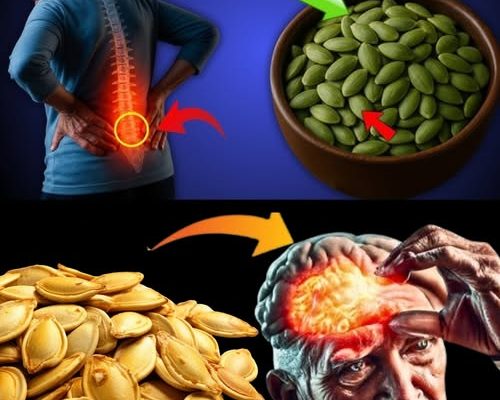Pumpkin seeds — small but mighty — are often crowned as a nutritional powerhouse. Packed with protein, magnesium, zinc, iron, and antioxidants, they’re a go-to snack for health-conscious eaters. But here’s the twist: even the healthiest superfoods can backfire if misused.
Are your pumpkin seed habits silently sabotaging your health? It’s more common than you think.
In this eye-opening guide, we’ll uncover 8 dangerous pumpkin seed mistakes that could be causing serious, even irreversible, reactions in your body. Don’t let a simple seed compromise your well-being.
1. Eating Pumpkin Seeds Raw and Unwashed
Think raw means healthy? Think again. Raw pumpkin seeds can carry harmful bacteria, mold spores, or pesticide residues — especially if they’re unwashed or improperly stored. Eating them raw and unwashed increases the risk of foodborne illness and toxin exposure.
✅ Do this instead: Rinse thoroughly and lightly roast them to kill off contaminants and enhance flavor.
2. Overeating Pumpkin Seeds Daily
Yes, they’re healthy — but not in unlimited amounts. Pumpkin seeds are fiber- and fat-dense, which can overload your digestive system if you go overboard. Common side effects include bloating, gas, diarrhea, or even constipation.
✅ Smart serving size: Stick to 1 ounce (about a small handful) per day for optimal benefits.
3. Ignoring the Salt Content
That tasty bag of roasted pumpkin seeds at the store? It might be a sodium bomb in disguise. High salt intake is linked to high blood pressure, fluid retention, and kidney strain — even when it comes from so-called healthy snacks.
✅ Healthier choice: Buy unsalted seeds or roast your own at home with minimal sea salt.
4. Eating Them with Shells Intact
Some eat pumpkin seeds whole — shell and all. But here’s the catch: the shells are fibrous and rough, which can irritate the digestive tract, especially for people with IBS, diverticulitis, or sensitive guts.
✅ What to do: Stick to shelled (pepitas) for easier digestion and nutrient absorption.
5. Not Checking for Mold or Rancidity
Pumpkin seeds are rich in healthy fats, but that also makes them prone to oxidation. If exposed to heat or moisture, they can turn rancid — and rancid oils are linked to inflammation, cell damage, and even accelerated aging.
✅ Storage tip: Keep them in an airtight container in a cool, dark place — or refrigerate for longer shelf life.
6. Believing They’re Safe for Everyone
Pumpkin seeds may be natural, but they’re not for everyone. Food allergies are real — and pumpkin seeds can trigger itching, hives, swelling, or anaphylaxis in sensitive individuals.
✅ If you’re new to them: Start small. Eat just a few and monitor your body for any reactions.
7. Thinking “More” Means “Better” for Men’s Health
Pumpkin seeds are known for supporting prostate health and testosterone due to their high zinc content. But overconsumption of zinc can cause nausea, metallic taste, headaches, and impaired copper absorption — creating long-term imbalances.
✅ Tip for men: Don’t exceed 40 mg of zinc daily from all sources combined. Balance is key.
8. Using Old or Expired Pumpkin Seeds
Expired seeds don’t just lose potency — they can develop mold or go stale and rancid. Eating these can introduce mycotoxins into your system, which are associated with immune suppression, gut irritation, and neurological symptoms.
✅ Always check: Smell the seeds. If they smell musty, sour, or bitter, toss them immediately.
🔚 Bottom Line: Eat Smart or Risk Long-Term Harm
Pumpkin seeds can be an incredible source of nutrition — but only when consumed properly. Ignoring these 8 critical mistakes can turn a healthy habit into a silent threat.
Before you reach for another handful, ask yourself:
Am I nourishing my body — or unknowingly harming it?
Make the smart switch today. Your body will thank you tomorrow.


